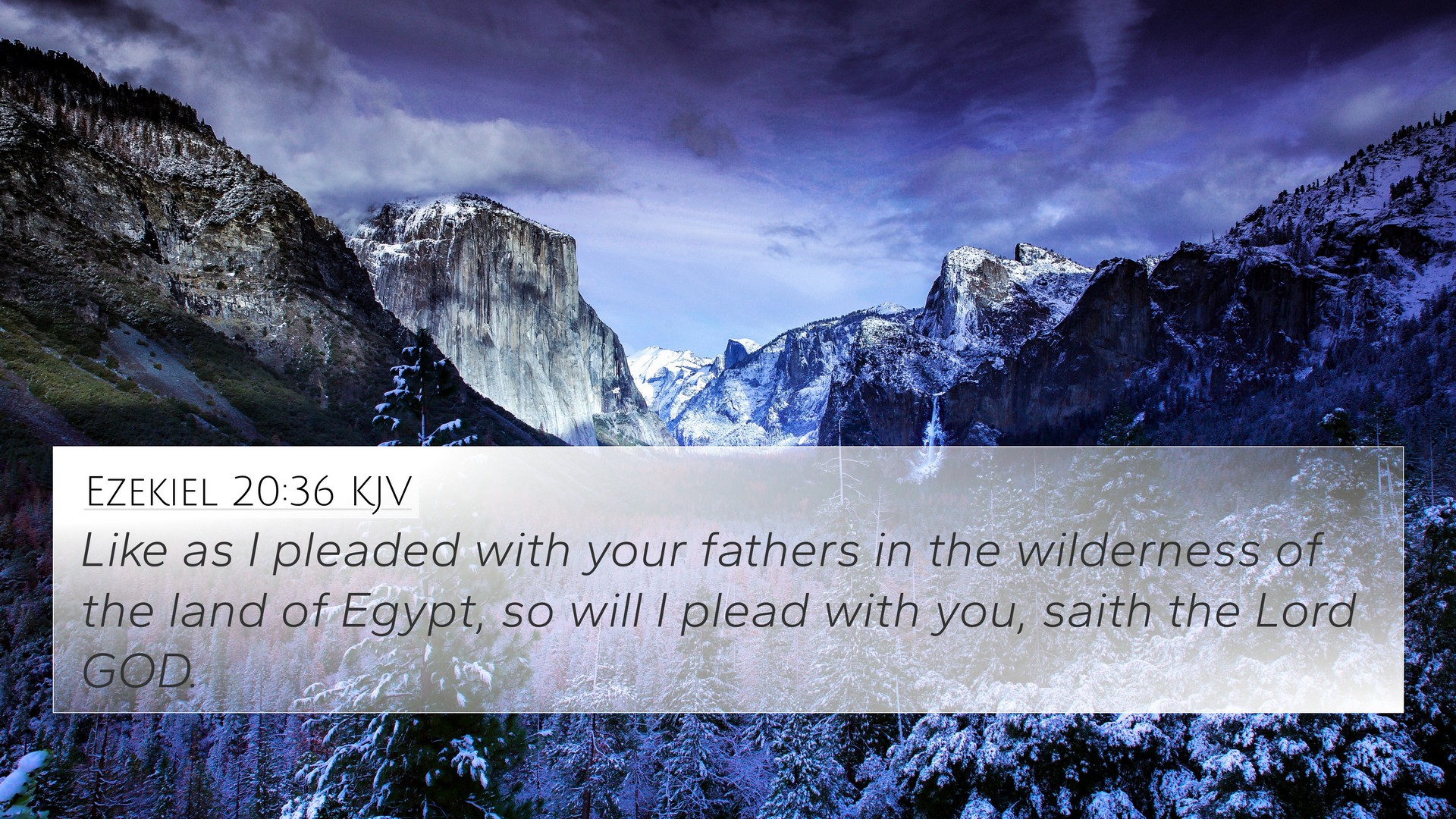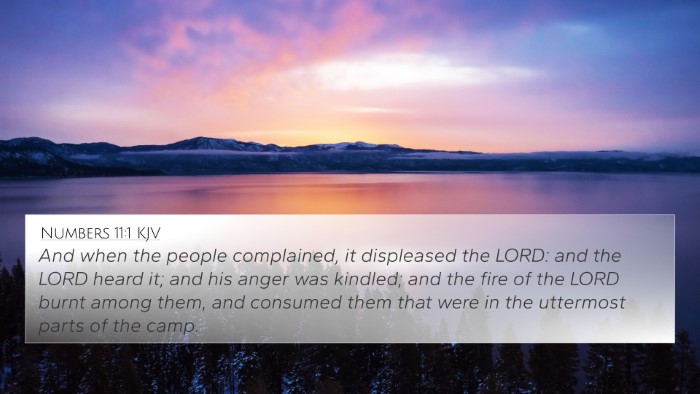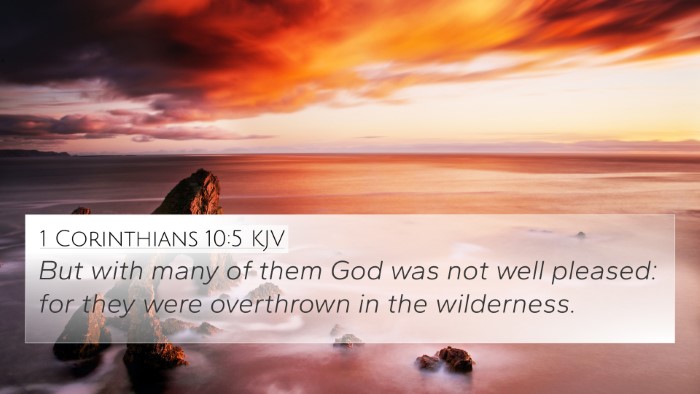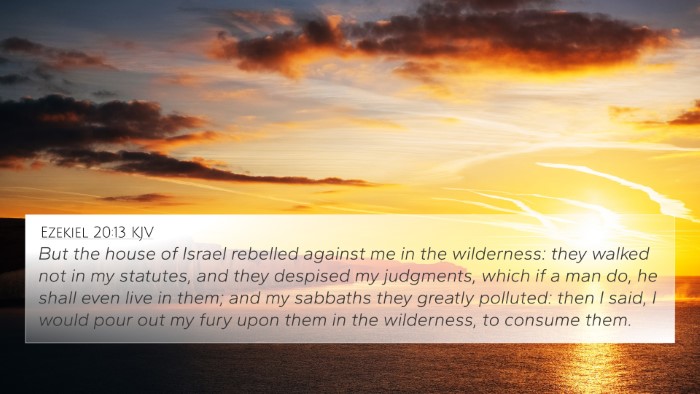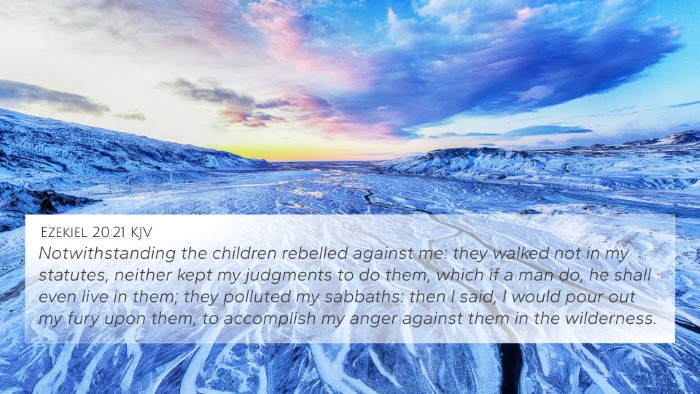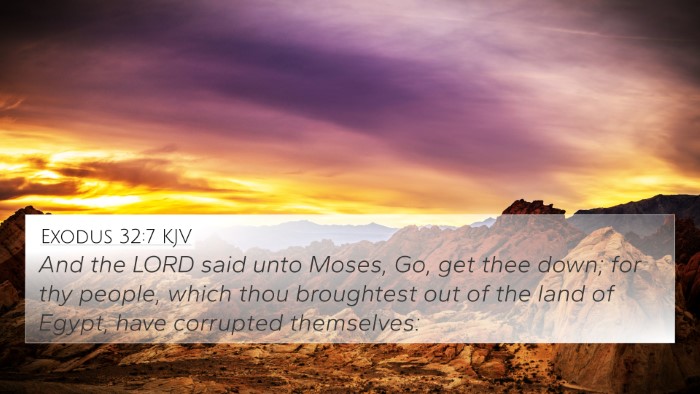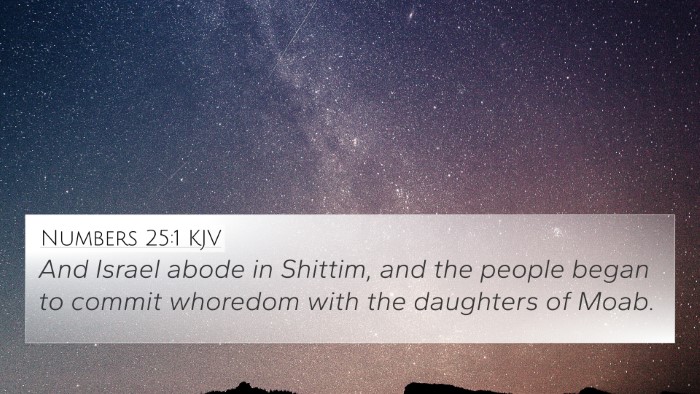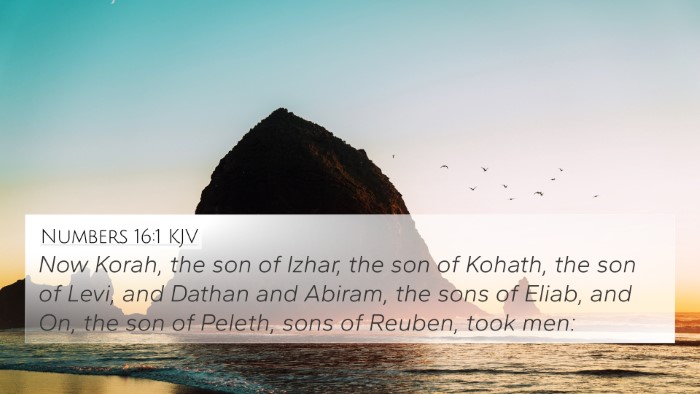Ezekiel 20:36 - Explanation and Insights
This commentary combines insights from public domain sources, particularly from the works of Matthew Henry, Albert Barnes, and Adam Clarke, to elucidate the meaning of Ezekiel 20:36.
Bible Verse Context
Ezekiel 20:36 (KJV): "Like as I pleaded with your fathers in the wilderness of the land of Egypt, so will I plead with you, saith the Lord God."
Summary of Ezekiel 20:36
The verse finds itself within a broader context where God communicates His intentions to the people of Israel. It reflects themes of divine pleading and the historical relationship between God and His people, especially during their time of wandering in the wilderness.
Key Themes and Insights
- Divine Pleading: The phrase "I pleaded with your fathers" indicates God's persistent desire for His people's repentance and return to a covenant relationship with Him. This plea is not just historical; it reveals God's ongoing desire to engage with humanity.
- Historical Reflection: By referencing the wilderness experience, God reminds the Israelites of their past, emphasizing His faithfulness despite their disobedience. This historical echo serves as both a warning and an encouragement.
- Call to Accountability: The verse carries an implication of accountability, as the Israelites are reminded that just as their ancestors faced consequences for their actions, so too will they face God's judgment.
- God’s Sovereignty: This verse reinforces God’s authority and sovereignty, as He proclaims, "saith the Lord God," underscoring that these are not mere suggestions but divine commands that must be heeded.
Topical Connections
Ezekiel 20:36 invites various links to other scriptures, forming a web of biblical truths. Here are some significant cross-references:
- Deuteronomy 8:2-5: Reflects on the testing of Israel in the wilderness as a means to humble them and reveal their hearts.
- Jeremiah 7:25-26: God’s continued outreach to Israel through prophets from their forefathers' time.
- Hebrews 3:7-10: Warns the New Testament believers against hardening their hearts like the Israelites in the wilderness.
- Psalm 95:8-11: A call to worship God and not to harden one's heart as the Israelites did in the wilderness.
- Isaiah 63:10: Discusses Israel's rebellion against the Spirit of the Lord, which can be paralleled with their stubbornness in the wilderness.
- Exodus 16:8: God's provision during the wilderness wanderings serving as a reminder of His care and the people's response.
- Romans 10:21: Paul echoes God's frustrations with Israel’s disobedience, offering a theme of divine pleading.
Connections Between Bible Verses
This verse can be interspersed with countless other verses to draw deeper theological insights:
- Linking Biblical Texts: The connection between Israel's stubbornness and the warnings throughout Old and New Testament emphasizes a consistent theme of God's desire for relationship.
- Bible Verses That Relate to Each Other: Ezekiel 20:36 can be compared to New Testament teachings about faith and obedience, especially in light of God's call for repentance.
Understanding Through Comparisons
By examining comparative Bible verse analysis methods, we can gain a more profound understanding of the themes in Ezekiel 20:36:
- Thematic Bible Verse Connections: The themes of obedience, repentance, and God's grace are prevalent throughout both the Old and New Testaments, connecting various scriptures.
- Bible Verse Parallels: Aligning Ezekiel's message with New Testament teachings about grace and accountability enriches our understanding of God's nature.
Tools for Bible Cross-Referencing
Utilizing tools such as a Bible concordance and a cross-reference Bible study, one can explore deeper connections within the Text. These resources provide insight into:
- How to find cross-references in the Bible easily.
- Identifying connections between both the Old and New Testaments, highlighting God's consistent message.
Conclusion
Ezekiel 20:36 serves as a crucial reminder of God's enduring desire for a relationship with His people, as well as the call for accountability and repentance. By employing comparative studies and thematic connections, one can enrich their understanding of this verse's implications, both historically and theologically.
SEO Content Integration
As you delve into the riches of scripture, remember these critical aspects of the verse and its connections within the sacred texts. The utilization of cross-referencing biblical texts enhances spiritual study, making each exploration of the Word more impactful.
